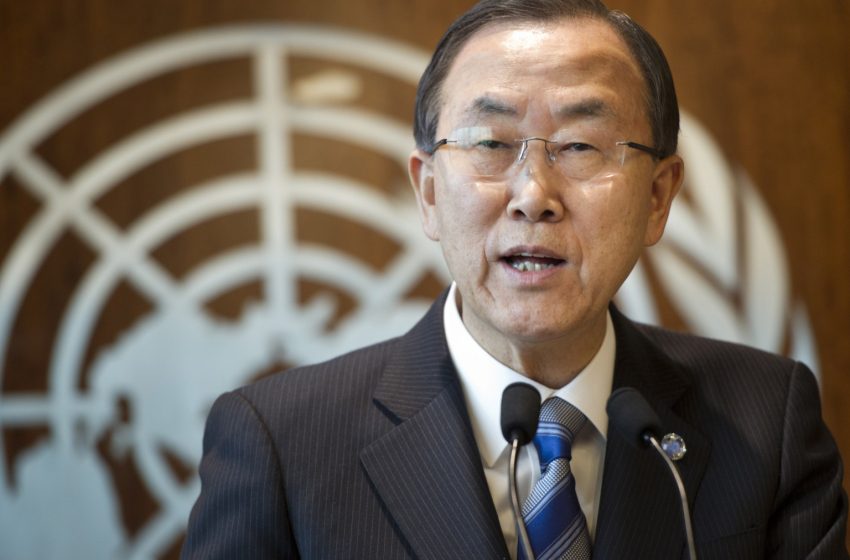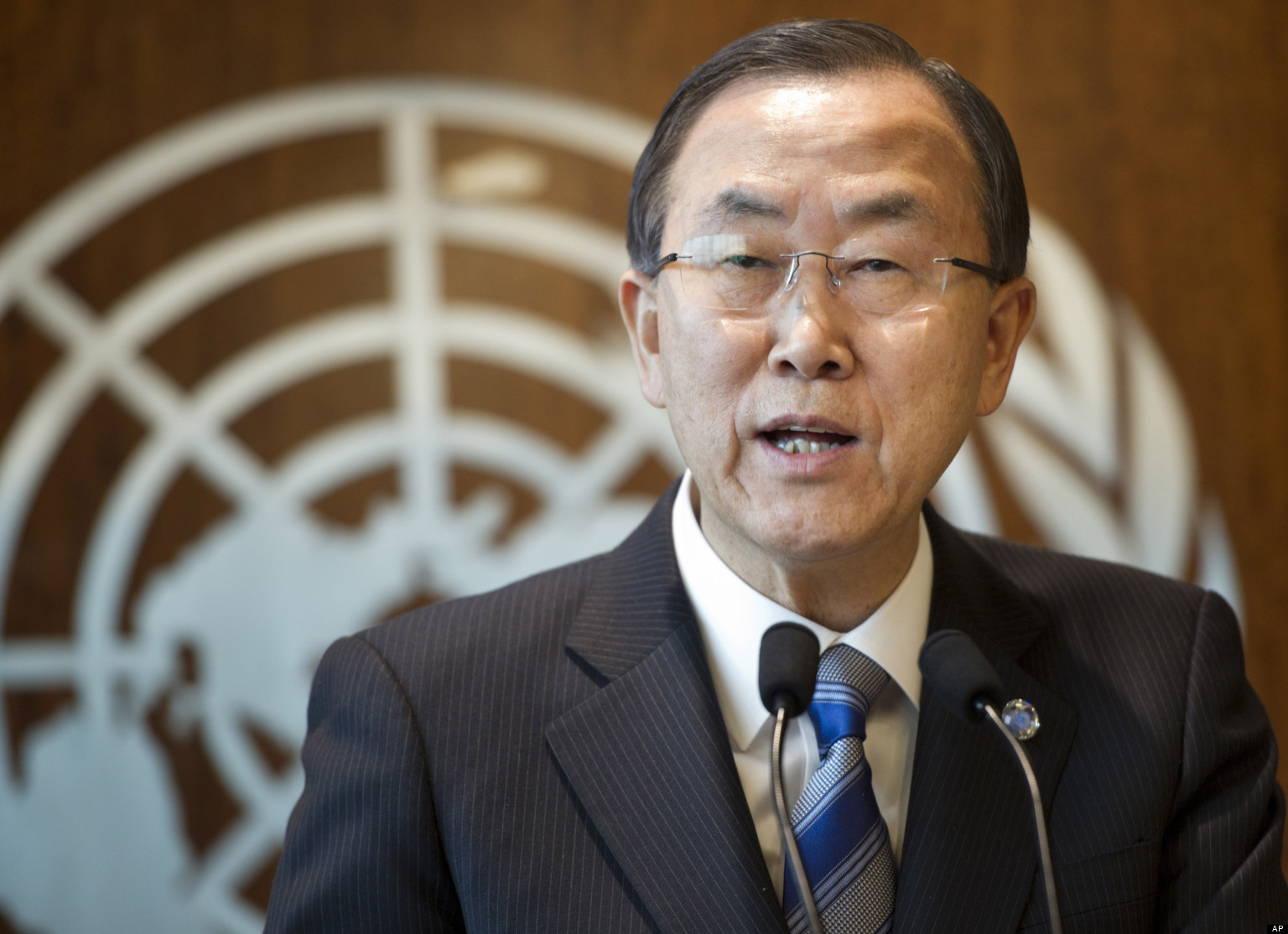Ki-moon: Qaida and ISIS appear to be prepared to cooperate at tactical level

United Nations Secretary-General Ban Ki-moon. File photo.

(IraqiNews.com) Baghdad – Secretary-General of the United Nations Ban Ki-moon released a new report on the threat posed by ISIS to international peace and security and the range of United Nations efforts in support of Member States in countering the threat.
The UN Secretary-General said in the report that the rise of ISIS and its establishment of a “caliphate” have reverberated in South-East Asia, inspiring new individuals and re-energizing pre-existing terrorist networks, thereby presenting a resurgent threat to the region.
“For the first time since the Afghan conflict, South-East Asian extremists have travelled abroad in a systematic manner to join a global militant movement, thereby developing combat skills and establishing contacts,” Ki-moon added.
“ISIS has continued to struggle financially, while at the same time attempting to adapt to its new reality. ISIS has intensified its efforts at taxation/extortion to compensate for the loss of revenue from oil and, by some estimates, earns as much as $30 million per month from this revenue source, which includes forced “zakat”, business taxes, fees for electricity and water, rent for seized real estate, and customs duties and passage fees,” Ki-moon explained.
The UN Secretary-General continued, “In response to these financial pressures, ISIS has increased the rate and number of its taxes and has even been taxing the most impoverished civilians, who had previously been excluded.”
“The worsening financial situation has weakened the group’s ability to govern. Salary cuts and delays in payment have also led some ISIS fighters to abandon the group,” he said.
Ki-moon revealed that ISIS operatives have used their personal relationships with individuals from al-Qaida to support their preparations for major attacks in Europe (in 2015 and 2016) and Kenya (in 2015), and pointed out that al-Qaida in the Arabian Peninsula and ISIS had provided operational support to each other in Yemen.
Ki-moon also considered that the military pressure currently being exercised on ISIS in Iraq and Syria has resulted in an increase in the number of foreign terrorist fighter returnees, in particular to Europe and the Maghreb.
“The increasing number of returnees may signal a weakening of the group’s ability to retain fighters and supporters in conflict zones. However, ISIS has responded to military pressure by increasing the number of externally directed and facilitated attacks and by employing deadlier tactics,” Ki-moon said.
“ISIS in Yemen targets government buildings and officials. The fierce propaganda competition between al-Qaida in the Arabian Peninsula and ISIS in Yemen notwithstanding, there are no reports of direct clashes between them,” the report added.
Ki-moon also declared in the report that fighters from the two groups appear to be prepared to cooperate at the tactical level.
